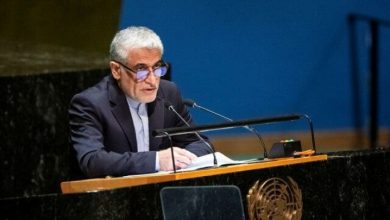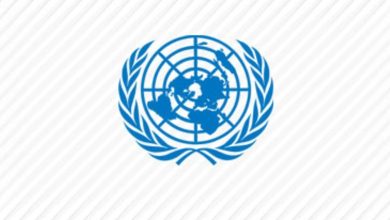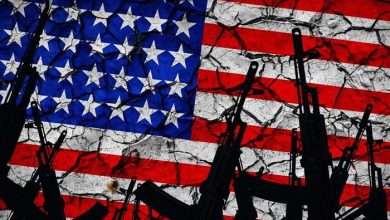When the hypocrites were trapped in Ashraf
Association for Defending Victims of Terrorism - Bakhsali Alizadeh, a former member of the terrorist group of the hypocrites, tells about the days when he was held captive by the leaders of the terrorist group in the barracks of the hypocrites in Iraq.

According to ISNA, “Camp Ashraf” was actually a part of the agricultural lands of the people of “Diyali” province, which was forcibly usurped by Saddam’s forces, and thanks to the cooperation and services of Masoud Rajavi to the Saddam regime in the Iraq war against Iran, as well as the suppression of the opposition Shiites. Saddam was given to Rajavi’s terrorist organization, which was completely evacuated on 20 September 1392. Of course, Ashraf had been attacked before this date, on April 19, 1390.
In all the years of its presence in Iraq, the organization of the terrorist group of the hypocrites acted as the military and security arm of the Baath party in suppressing the opposition, in a way that, according to historical documents, it played a prominent role in suppressing the Shabaniyah intifada of Iraqi Shiites, as well as widespread massacres in northern Iraq. performed
Rajavi always claimed that the Ashraf garrison is the so-called “red border” and “the honor of every mujahid”, and he always stated that they will not evacuate Ashraf at any cost and said: “The mountains should not move, Ashraf should not move!” In fact, the name of Camp Ashraf was derived from the name of “Ashraf Rajavi”, the first wife of Masoud Rajavi, the current leader of that organization and one of the political prisoners during the Pahlavi regime.
Ashraf Rajavi was released from Evin prison in 1357 along with the last group of political prisoners, and on 19th of Bahman 1360, together with “Moussi Khayabani”, the second member of the Mujahideen, their place of residence in Zafaranieh, Tehran was attacked by the Islamic Revolutionary Guard Corps forces. He was killed
Bakhsali Alizadeh, one of the separated members of the Mujahideen group, narrated: “As soon as dawn breaks, in the blink of an eye, the Iraqi loaders and bulldozers that gathered during the night behind the fences and barbed wire of the Ashraf barracks of the People’s Mojahedin Organization in Iraq and themselves had prepared, collected the fences and always made the way for the entry of Iraqi infantry and armored forces.
I remember every moment of the story. The shots had started, it was raining bullets from the ground and time. The bullets passed by our ears and hit the ground next to us. I looked and saw a volley of bullets hitting the ground. Armored vehicles, armored personnel carriers, anti-riot sprinklers, multiple loaders, heavy bulldozers, and Iraqi armed forces entered from the north of the barracks and were advancing. Everyone was moving towards the east-west axis of Ashraf Barracks (100 Street). At the same time, the sound of an airplane in the sky also caught my attention, and I saw a single-engine unmanned reconnaissance aircraft patrolling above the scene of the conflict, as if they were filming and controlling the scene.
Without exaggeration and without any bias, I would like to say that no one except Masoud Rajavi was the cause and originator of this terrible tragedy. The childish and illogical stares and stubbornness of this person were full of illusions, which caused a lot of blood to be spilled. This terrible attack was not the result of a day or a few days, but the result of several months of conflicts that Rajavi had created with the Iraqi government.
In that attack, 36 residents of Ashraf were killed and nearly 1,000 people were seriously injured, of which I was one of the injured. Later, I underwent surgery three times and I still carry the effects and symptoms of that injury.
After the military fall of Saddam’s dictatorship and the relative political stability in Iraq, the Iraqi courts issued the arrest warrant for Masoud Rajavi and Maryam Rajavi as the leaders of the terrorist group of the hypocrites. The reason was the presence of this terrorist group in killing Shiites in southern Iraq and Kurds in northern Iraq.





